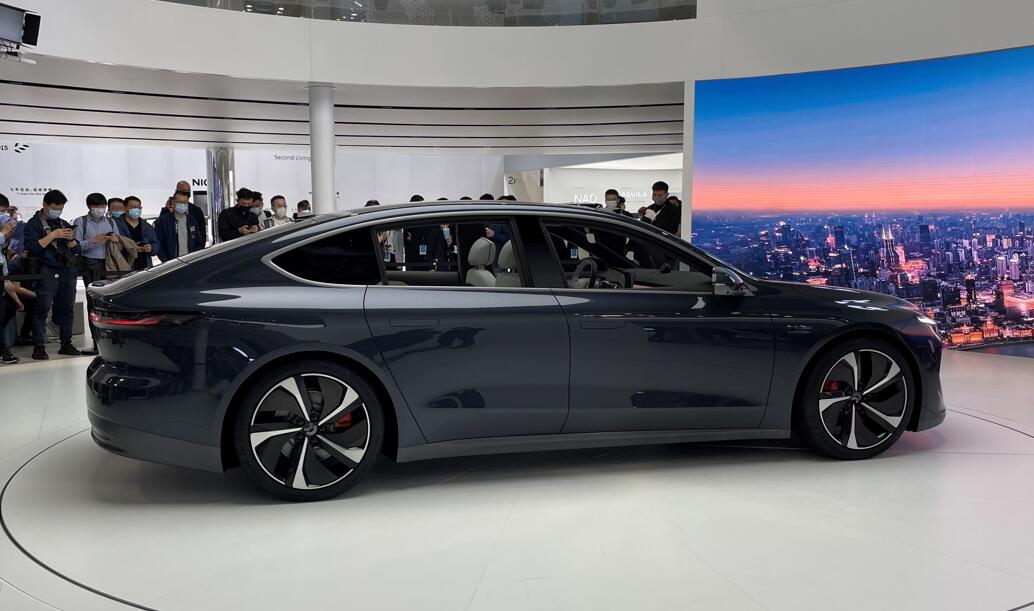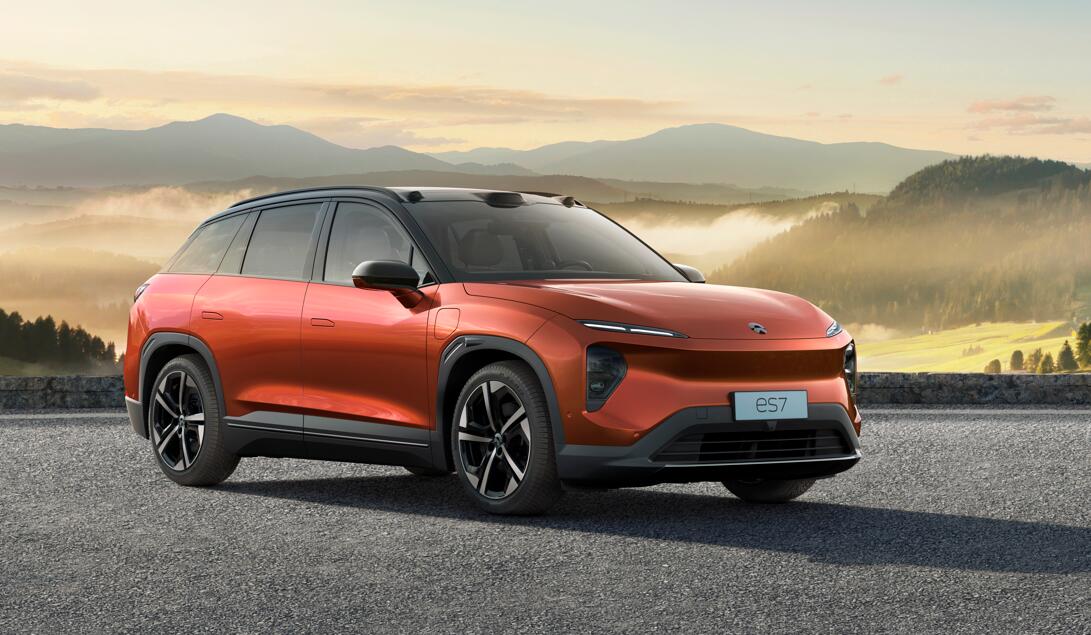This is in part driven by the recognition that the premium market should be more lucrative and less competitive over the next few years, according to Edison Yu's team.
Deutsche Bank believes that China's leading electric vehicle (EV) makers are aiming higher, with Nio (NYSE: NIO, HKG: 9866, SGX: Nio), Xpeng Motors (NYSE: XPEV, HKG: 9868), Li Auto (NASDAQ: LI, HKG: 2015) all having launched or about to launch higher-priced models this year.
With several new products set to launch this year, emerging Chinese EV companies are making a concerted effort to target the premium end of the local market and eventually abroad, Deutsche Bank analyst Edison Yu's team said in a research note sent to investors on Tuesday.
(Image credit: CnEVPost)
As background, Nio began deliveries of its flagship ET7 sedan, which starts at RMB 458,000 ($68,430), in late March, with cumulative deliveries reaching 6,912 units through the end of June.
On June 15, Nio unveiled a new SUV, the ES7, with a starting price of RMB 10,000 higher than the ET7. The company also launched the 2022 ES8, ES6 and EC6, all with starting prices RMB 18,000 higher than previous versions.
Deliveries of the Nio ES7 as well as the 2022 ES8, ES6 and EC6 will all begin in August.
(Image credit: Nio)
Li Auto launched its second model, the Li L9, on June 21, which has similar dimensions to the Mercedes-Benz GLS and BMW X7 and a price tag less than half of them. But compared to the company's first model, the Li ONE, the Li L9's price tag of RMB 459,800 is an increase of RMB 110,000.
(Image credit: Li Auto)
Xpeng's new SUV G9, unveiled in November last year, will be available for pre-order in August and will go on sale in September, the company's chairman and CEO He Xiaopeng said on Weibo on June 29.
The price of the Xpeng G9 is currently unknown, but it will be the company's most expensive model, which Mr. He previously said would be "the best SUV within RMB 500,000."
(Image credit: Xpeng)
Yu's team said in their note that these emerging EV companies are targeting the higher end of the market, in part because they recognize that the premium segment should be more lucrative and less competitive in the coming years.
On the other hand, Nio has gained meaningful traction at the premium end of the market, suggesting the potential for local brands to make a breakthrough, the team said.
Meanwhile, the EV efforts of German luxury automakers Mercedes-Benz, BMW and Audi have largely failed to resonate with local consumers so far, but still sell a large number of vehicles with internal combustion engines, Yu's team noted.
"For Li Auto, Nio, and Xpeng, we observe the next batch of products are all catering to the premium end with ASPs surpassing 500,000 RMB ($75,000) in some cases," the team wrote.
The Nio ET7 starts at RMB 458,000 and its upcoming ES7 SUV starts at RMB 468,000, going directly after the BMW X5, the team said.
Li Auto announced 30,000 pre-orders in 72 hours for the Li L9. The company's future all-electric models also appear to be aimed at the premium price point, as the focus is on ultra-fast charging and next-generation ADAS/AD systems, the team noted.
Xpeng's next three vehicles will all have higher average selling prices, starting with the G9 SUV in the third quarter. The price range is RMB 300,000-400,000, with a new 800V silicon carbide inverter and positioning similar to the Tesla Model Y, but with a slightly longer wheelbase, according to Yu's team.
In 2023, Xpeng expects a new full-size sedan called the P9 at a price point of about RMB 400,000 and will launch a smaller, high-end SUV at RMB 200,000-300,000, according to the team.
"As some of these vehicles start hitting roads in late August, we believe success domestically could embolden the companies to be more aggressive abroad particularly in Europe," the team wrote.
A driving factor for these high-end vehicles is Contemporary Amperex Technology Co Ltd's (CATL, SHE: 300750) next-generation Qilin Battery, which will go into volume production next year, the team said.
CATL officially unveiled its CTP (cell to pack) 3.0 Qilin Battery on June 23, saying it takes battery system integration to a new level.
The battery has an energy density of 255 Wh/kg, easily enabling the vehicle to achieve a range of 1,000 km. The battery can be charged to 80 percent in 10 minutes and will be in mass production by 2023, CATL said.
The battery is expected to be used in future models by Li Auto, Geely's Lotus and Hozon Auto's electric vehicle brand Neta.
Become A CnEVPost Member
Become a member of CnEVPost for an ad-free reading experience and support us in producing more quality content.
Already a member? Sign in here.





